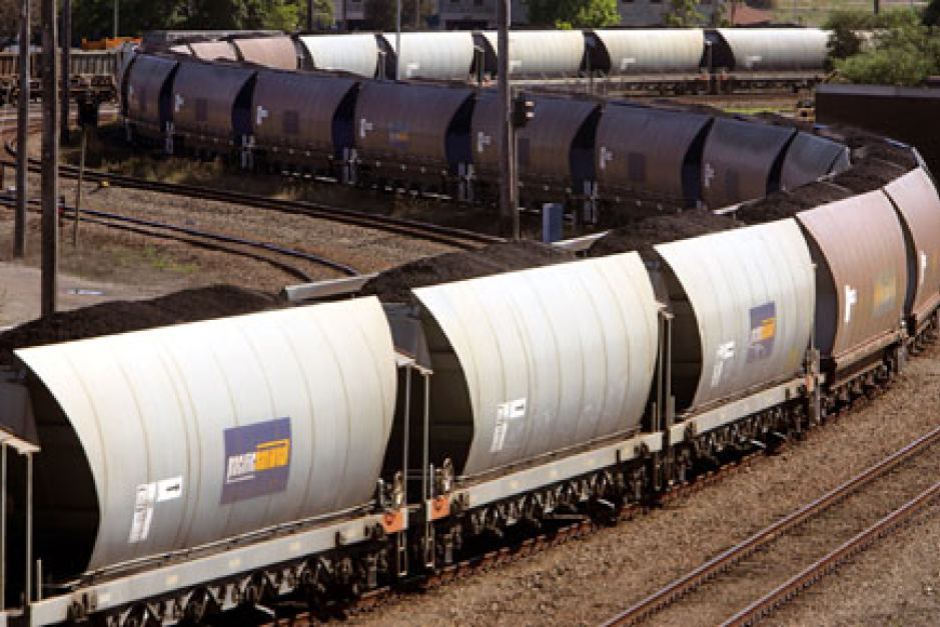Category: Coal / Mining Industry / Rail Transport / Cyclones / Business, Economics and Finance
Coking coal prices post biggest one-day gain on record amid Debbie disaster
10:55 UTC+8 April 6, 2017 | Michael Janda

Four miners have now declared force majeure because they cannot get their coal to port. (ABC)
Coking coal prices have experienced their biggest one-day price surge on record as rail outages block up to half the world's export shipments.
Yesterday, the key benchmark price leapt by almost a third to $US241/tonne, according to commodity analysts S&P Global Platts.
The key reason for the unprecedented price increase is the lack of supply now coming from Queensland, which accounts for half the world's seaborne trade in coking coal, used for making steel.
That lack of supply has been caused by rail disruptions which are expected to last as long as five weeks on some major coal transport corridors, after Cyclone Debbie washed away tracks and triggered landslides.
Aurizon's Goonyella line appears to be the most severely damaged, and is the key rail connection between some of the Bowen Basin's biggest mines and the massive Dalrymple Bay and Hay Point coal loading terminals.
 Photo:
Aurizon's Goonyella rail corridor is likely to be out of action for around five weeks. (Supplied: Aurizon)
Photo:
Aurizon's Goonyella rail corridor is likely to be out of action for around five weeks. (Supplied: Aurizon)
The extensive rail outages have triggered four miners to declare force majeure on their coal contracts - a legal action meaning the contracts cannot be enforced because a natural disaster has prevented the firm from meeting its obligations.
Among those firms are giant multinationals BHP Billiton and Glencore.
"We are continuing to receive updates from Aurizon about the extent of the damage and likely restart of rail operations," noted Glencore's Francis De Rosa in a statement.
With Goonyella out of action for up to five weeks and much of the Blackwater line from the southern Bowen Basin to the Rockhampton-Gladstone area still under floodwaters, it is uncertain when exports will get back to full capacity.
Lost coal exports worth up to $4 billion
In the meantime, analyst estimates of lost production range from 13 to 20 million tonnes, which would have been worth between $US2-3 billion ($2.6-4 billion) at the $US150 a tonne price that prevailed before the supply shortage.
ANZ commodity strategist Daniel Hynes was quoted by Reuters as saying that the lost production equalled about a fifth of China's coking coal imports, which were 59 million tonnes in 2016.
"While coal producers have learnt their lesson from the devastating floods in 2011, they will struggle to recover any of the lost production," Mr Hynes wrote in an analyst note.
Coking coal prices are extremely sensitive to supply fluctuations, with Chinese production cuts last year pushing prices briefly above $US300/tonne, and the record metallurgical coal price set in the aftermath of the Cyclone Yasi floods that wiped out much Bowen Basin production for months.
- About Us
- |
- Terms of Use
- |
-
 RSS
RSS - |
- Privacy Policy
- |
- Contact Us
- |
- Shanghai Call Center: 962288
- |
- Tip-off hotline: 52920043
- 沪ICP证:沪ICP备05050403号-1
- |
- 互联网新闻信息服务许可证:31120180004
- |
- 网络视听许可证:0909346
- |
- 广播电视节目制作许可证:沪字第354号
- |
- 增值电信业务经营许可证:沪B2-20120012
Copyright © 1999- Shanghai Daily. All rights reserved.Preferably viewed with Internet Explorer 8 or newer browsers.




 Send to Kindle
Send to Kindle